What has changed in Beijing post-pandemic?

During my work trip in Beijing, buying a cup of coffee from the cafe downstairs became a daily routine I looked forward to. The cafe serves affordable artisan coffee; a nice cappuccino is only 15 RMB (about US$2), with a discount of 5 RMB for environmentally conscious customers who bring their own cups.
Visiting China's capital again after the three-year-long pandemic, the first small discovery I made was that artisanal coffee was available at every street corner.
Only after my second foray to the cafe downstairs - Manner - did I realise that it was a unicorn enterprise that had emerged during the pandemic. Singapore's sovereign wealth fund Temasek Holdings even participated in the coffee chain's series A funding round in 2021. It has since completed five rounds of funding and is currently valued at around US$2.8 billion.
More refined taste buds
Over the past few years, more than ten new coffee brands have emerged, highlighting the increasingly sophisticated tastes of Beijing urbanites and their more westernised consumption habits.
My Beijing colleagues mocked my coffee choice, saying that I "should not drink traditional Italian coffee when in China but should try their local innovative flavours instead".
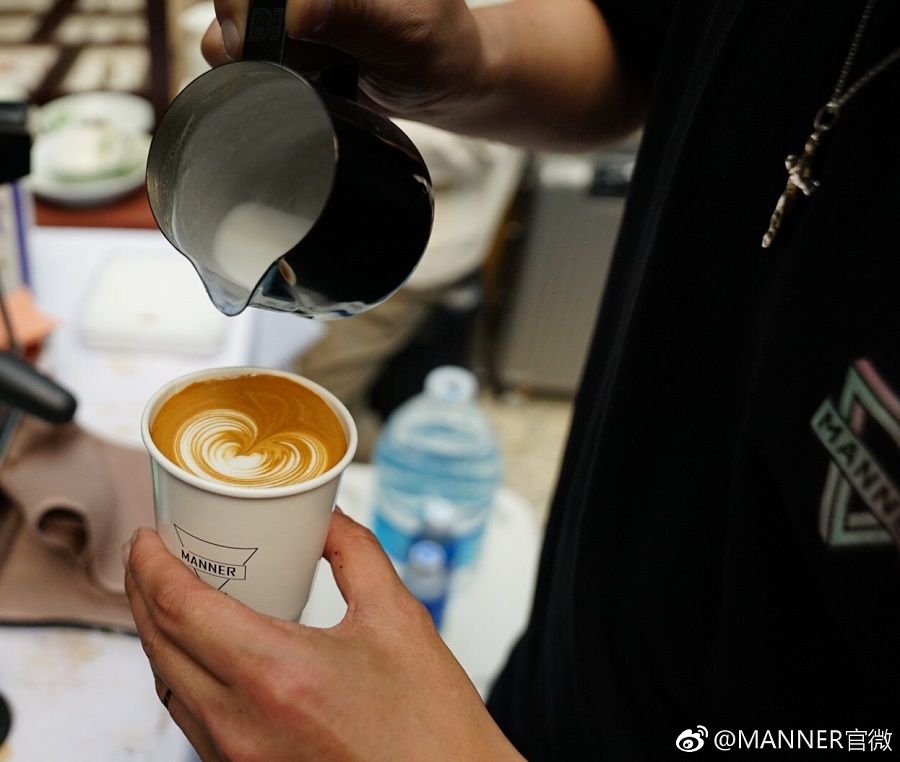
I popped round to the other cafes in the neighbourhood, indeed finding a wide range of unique flavours on offer, including oatmeal, osmanthus, jasmine, biluochun tea, orange, cheese, sea salt, and "dirty", which mixes hot espresso, cold milk and other ingredients to create an alchemy of flavours and visuals.
To fight for a bigger market share, Chinese enterprises have to be at the top of the game in terms of product type, creativity and even evoking consumer emotions, all driven by intense competition.
A friend of mine scolded me for drinking Manner's coffee. She said, "Why are you drinking Manner coffee in China? You should go to the hutongs (old alleyways) and buy from the coffee shops that roast their own beans!"
I thought to myself: if this trend continues, maybe Chinese coffee will take on European and American coffee someday and spearhead a new coffee trend?
Some say that Beijing today is quieter, neater and has a more profound sense of history.
Subtle changes in the city
People have also asked me whether I've observed any other changes in Beijing. I haven't really been able to give a concrete answer. I wouldn't say there are major changes, but I do find subtle changes in the overall atmosphere of the city.
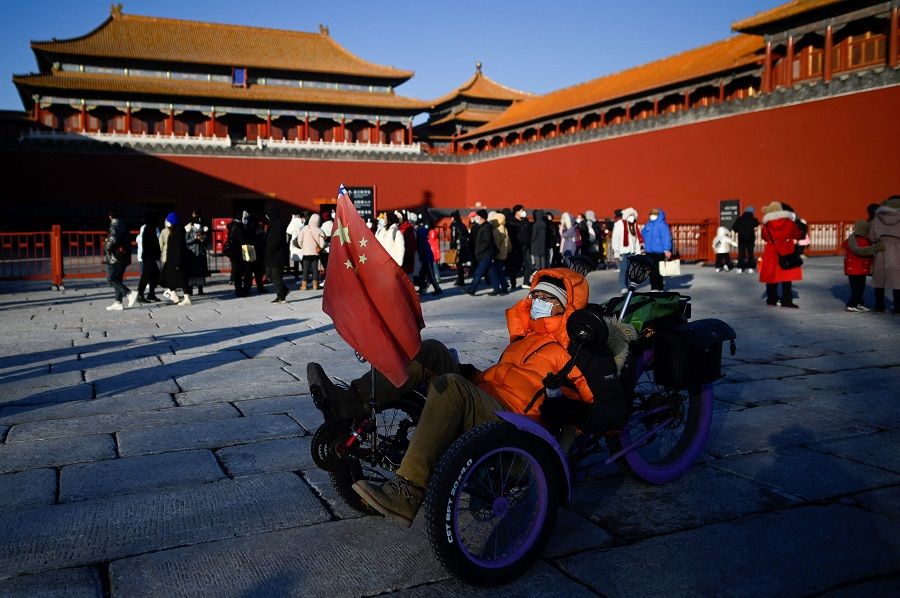
First of all, there are fewer people and almost no Caucasians. This is firstly due to the mass eviction of the "low-end people" (or migrant worker communities) in 2017. Three more years of pandemic followed, and the situation became especially dire in 2022 when China struggled with the stringent anti-Covid measures and the ailing economy, and job opportunities in major cities became more scarce.
Besides, as China's travel and border measures have not yet returned to pre-pandemic levels, it is no wonder there are fewer people. Beijing reportedly experienced a surge in tourists in early January when China just reopened, but the numbers have recently dropped again.
The second change is the mushrooming of grand landmark museums in the city, such as the Museum of the Communist Party of China which opened in 2021 and promotes the history of the party; and the First Historical Archives of China, which opened in 2022 and showcases national pride while providing research archival materials. More than ten million pieces of archives from the Ming and Qing dynasties are collected in the four underground floors and ten above-ground floors of the building, and are available for public viewing by appointment.
Some say that Beijing today is quieter, neater and has a more profound sense of history.
... Beijing has become more middle-class and a commercial centre with a strong consumer culture, of which cafe culture is just one aspect.
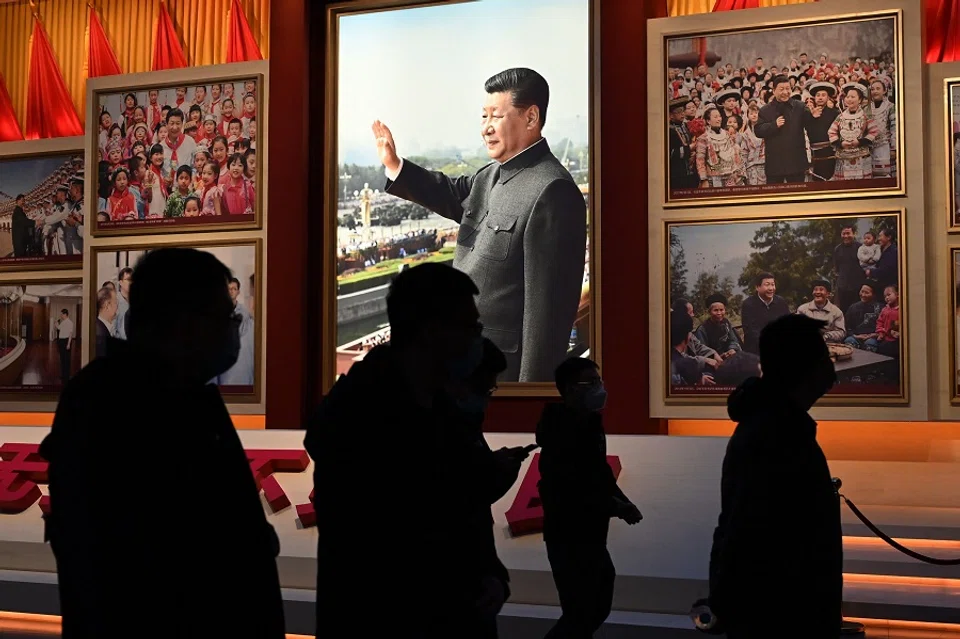
The third change, to my surprise, is that Beijing has become more middle-class and a commercial centre with a strong consumer culture, of which cafe culture is just one aspect. Last year, white-collar workers were raving over luxury Brompton foldable bikes, which they called 100% pure British blood. This year, after the relaxing of Covid-19 controls, it is really difficult to snag restaurant reservations. On the subway, the people I saw walking by were all rather well dressed.
Figures show that China's post-Covid recovery is still weak, and it faces a slew of problems including the slump in the property market, low confidence among private enterprises, as well as high youth unemployment.
But on the ground, people's lives have not been severely affected - everyone is more careful with spending but it does not mean that they are cash-strapped.
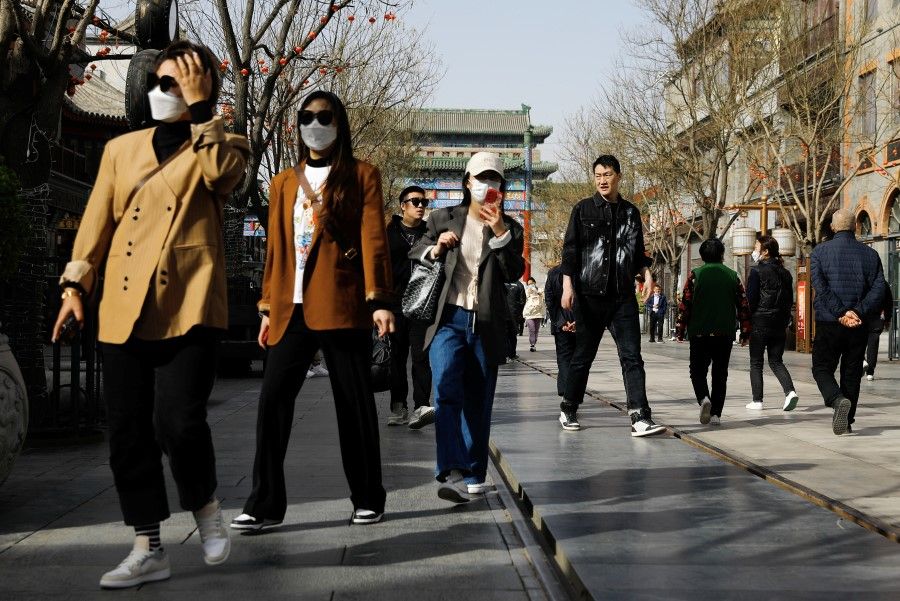
The costs incurred from implementing three years of Covid-19 controls have also tightened the finances of many local governments. The phrase "debt risk of local governments" appeared three times in last year's Central Economic Work Conference report, which was rare. Civil servants in some prefecture-level cities in Guangdong even took 40% pay cuts. But on the ground, people's lives have not been severely affected - everyone is more careful with spending but it does not mean that they are cash-strapped.
'China-style modernisation'
An analysis by Washington think tank Center for Strategic and International Studies said that going by global standards, as of 2018 China's middle class has grown to half of the population, or over 700 million people. As the Chinese saying goes, a starved camel is still bigger than a horse - China is still a formidable, huge market that cannot be overlooked.
The news media now features more political propaganda, but people are talking less about current affairs in daily life.
However, despite the people's penchant for spending and increasingly refined tastes, one does feel that something is amiss in Beijing - that is, more pragmatism, less old Beijing chattiness. Indeed, Beijing cabbies are no longer the legendary "political commentators" they were before Covid-19.
The news media now features more political propaganda, but people are talking less about current affairs in daily life. This might be because the ordinary people don't have much they want to talk about. Furthermore, they know that talking about it won't change anything and might attract trouble instead. So why not focus on work and enjoy life, to help develop the national economy and technology?
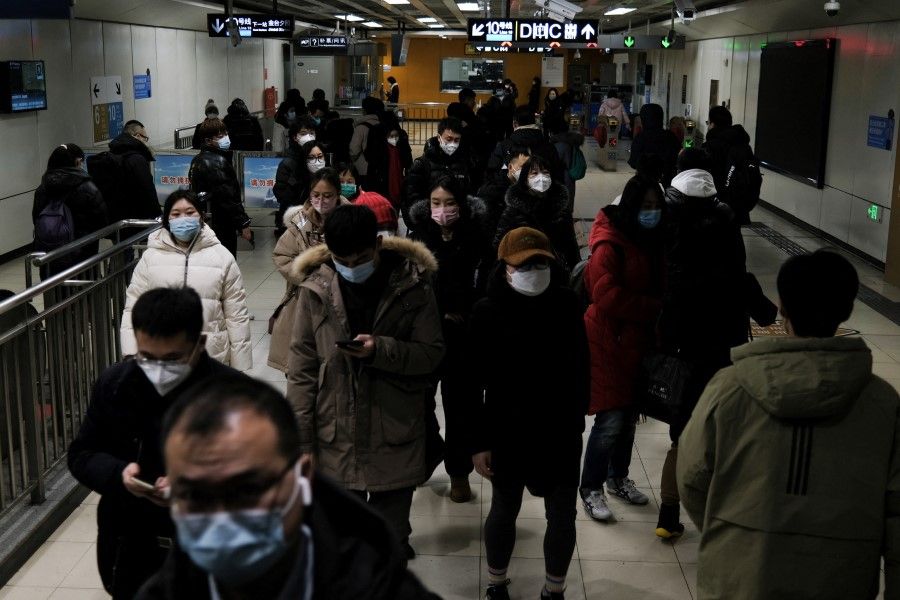
In this ancient cultural city, those in power are resisting the general trend of westernisation, to prove that modernisation does not mean westernisation. The solution is to strengthen both Chinese traditional culture and the power concentrated in the CCP Central Committee, to build a new model of modernisation, and provide a new alternative for modernisation deemed a "China-style modernisation".
Will this attempt work? This is the point that is most worth watching after the 20th Party Congress. Some people are worried that the concentration of power will start from the very top and be passed down and replicated in the lower levels, leading to new risks after having resolved past issues such as the poor communication of political instructions.
With China still on the path of ascendancy, problems will be resolved along the way, but one does feel uncertain about the future outlook. However, there is still growth to look forward to in the foreseeable future, especially in the next few years after Covid-19 amid the authorities' all-out efforts to revive the economy. As long as there are no sudden risks, the ordinary people can still lead decent lives.
This article was first published in Lianhe Zaobao as "疫后看北京的变与不变".
Related: Why Chinese youths are not spending | Can China rally private enterprises and boost domestic demand? | Should Beijing worry about the exodus of manufacturing from China to Vietnam? | Export slowdown reveals cracks in one of China's economic pillars | Private enterprises in China feel the heat of government influence | Can private Chinese enterprises truly 'develop boldly and with confidence'?
